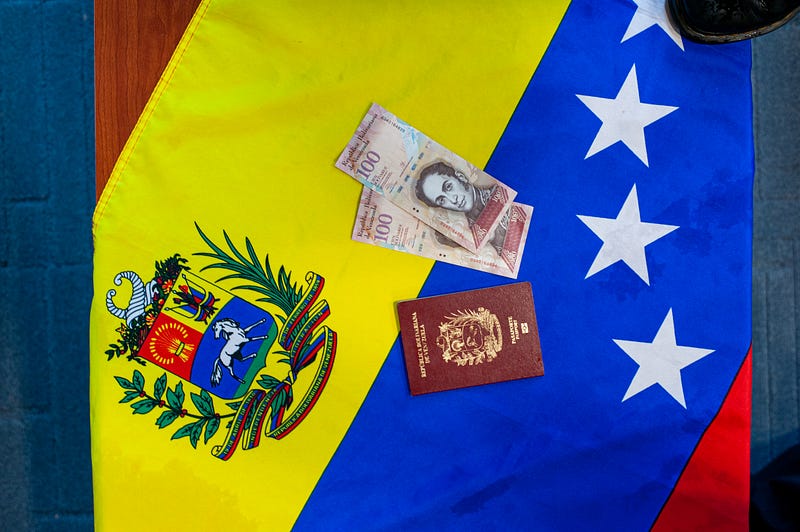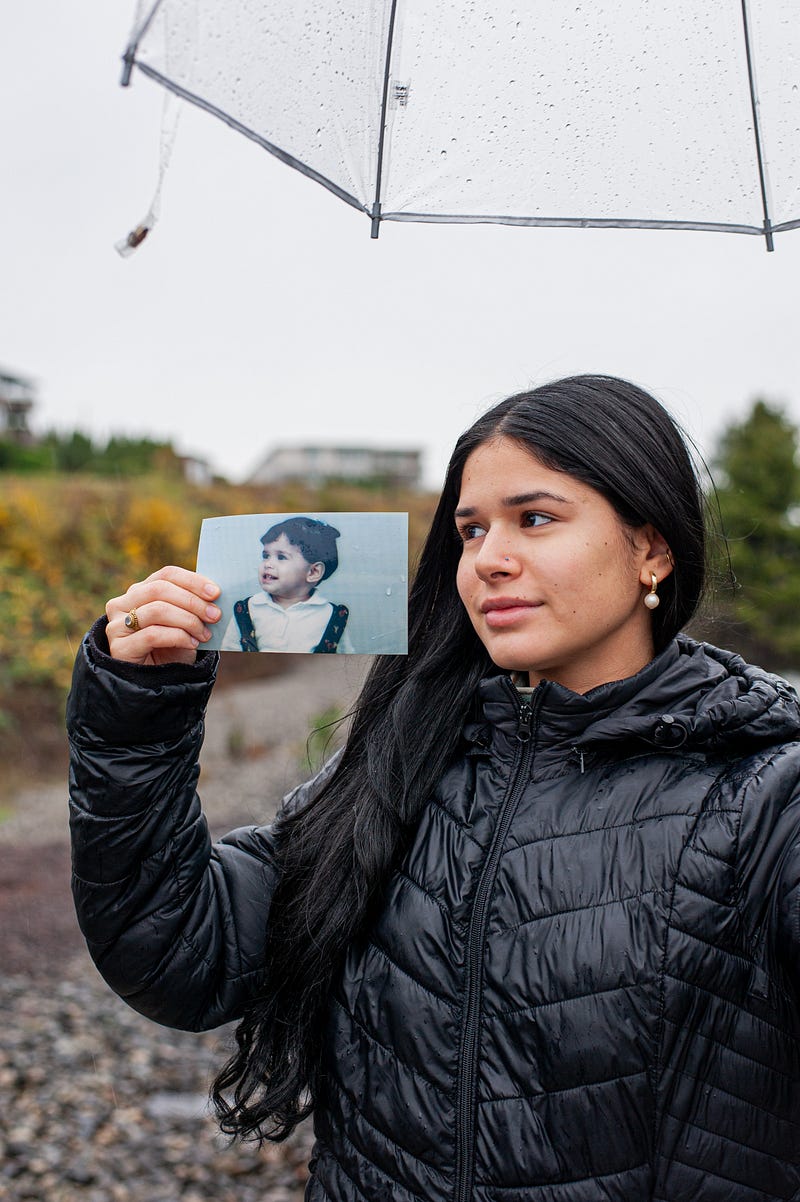The Spark is Still There

The story of my Venezuelan immigrant family living in Bellingham.
Story by Elisa Espinoza
We wake up early and get ready to leave my grandma’s house. The sky is blue, the sun is out and the weather is perfect as always — not too cold and not too hot.
On the way to the airport, we pass a couple hills covered with colorful ranchos, informal houses that look like they are stacked on top of each other. A couple of minutes later, we reach the coast and the Caribbean Sea peeks in the distance. It would be nice if we were going to the beach, I think, but that wasn’t the case this time.
After 30 minutes on the road, my mom, my sister and I arrive at the Simón Bolívar International Airport, the main gate to the beautiful but troubled Venezuela. The date is Nov. 17, 2016, my last day in my home country.
We carried three suitcases, only one for each of us. Inside was mostly clothes. My mom asked us not to bring sentimental objects that might raise the suspicion that we were using our tourist visas to seek asylum. She told us not to cry for the same reason.
Some of our family and closest friends came with us to say goodbye. As we embraced each other one last time in front of our gate, they couldn’t help but break my mom’s rule.
“Everyone was crying and I didn’t even feel like crying. I had cried enough,” my mom said as she remembered that day with a lump in her throat.
To be honest, I can’t really remember how I felt at that moment. I guess I was numb. All I knew is that a couple of hours later we landed at the JFK Airport. We were officially immigrants.
My abuelo, who had been living in Queens for many years, was there to receive us. We spent a couple of weeks with him, but New York was not our final destination.
In January 2017, we hopped on a plane to meet my dad in Bellingham, Washington, a place I couldn’t even locate on a map. He chose Bellingham as our new home and had been making the arrangements for us to start our new life. He liked how calm the city was, and thought it would make our transition easier.

To me, though, Bellingham felt too calm and too gloomy. I slowly started to miss the sun, my people and our chaos.
My head was never really quiet despite the silence. I couldn’t stop thinking of what I was missing. I had no friends, no job and no plans to continue studying.
I only had my family, and even so, I felt like we were not the same. We didn’t have our spark anymore.
My mom started to have her own worries too. She and my dad now had to figure out how to make a living in a foreign country with little support, but she was not afraid.
“I would’ve been more scared of not having the opportunity of leaving Venezuela,” Mom told me.
In Venezuela, we were constantly dealing with hyperinflation, high crime rates and shortages of all kinds. In the U.S., we were dealing with other types of challenges. For me, it was the drastic cultural and social change. For my parents, it was the English language.
My dad knew enough to hold a basic conversation, but my mom knew almost nothing.
“It was very difficult for me because I did not understand anything,” my mom said. “There were things I couldn’t do, like help my younger daughter with her homework.”
But she didn’t have time to focus on what she couldn’t do, she had to focus on what needed to be done. She was determined to succeed for us.
“My daily encouragement was both of you,” Mom said, referring to my sister and I. “I tried to see the positive in everything and focused on knowing that being here would allow me to help our family that was still in Venezuela.”
With time, everyone in my family seemed to have accepted that Bellingham was our new home.
For my mom, there is not a key ingredient to magically become a successful immigrant. She says it is a process that’s unique for each person, but being flexible and resilient always helps.

“You have to adapt and know your home is not where you come from, it is where you are at the moment. You have to make that place yours,” my mom said.
Finding people you can connect and share your culture with is also important.
“It’s been helpful to have met good people throughout these years who have become friends,” my mom said.
But adapting to a new reality was a little harder for me than it was for her.
I started studying and I gained a little sense of security and confidence, yet I still couldn’t connect with anyone. I had been isolated for so long that I had convinced myself I had nothing in common with people in Bellingham.
My mind and my heart were closed. I knew something had to change.
Through the process, my mom constantly encouraged me to open up and move forward.
“I needed you to understand that you couldn’t miss your friends and your country forever,” she told me as we remembered the many difficult conversations we had. “Even if you decided to return, you were not going to find the same people and the country was no longer the same.”
I decided to sign up for clubs, I took a new job and forced myself to become more social. It took me a while to let people in, but my mindset started to switch. I understood I didn’t need to change who I was, I just needed to be myself, with my accent, my Venezuelanness and all.

“You suddenly had all the positivism that we all need to face adversity,” my mom said, a smile on her face.
As I write this, it’s October 2021, almost exactly five years since we moved to the U.S.
There are some things we cannot change. We are still far from many of our loved ones and our home country is still a mess.
There are also some things we’ve earned and gained. We have new loved ones, I will be graduating soon and my mom’s English is getting better every day.
We’re a little different, but the spark is still there. We might have left Venezuela, but Venezuela never left us.
